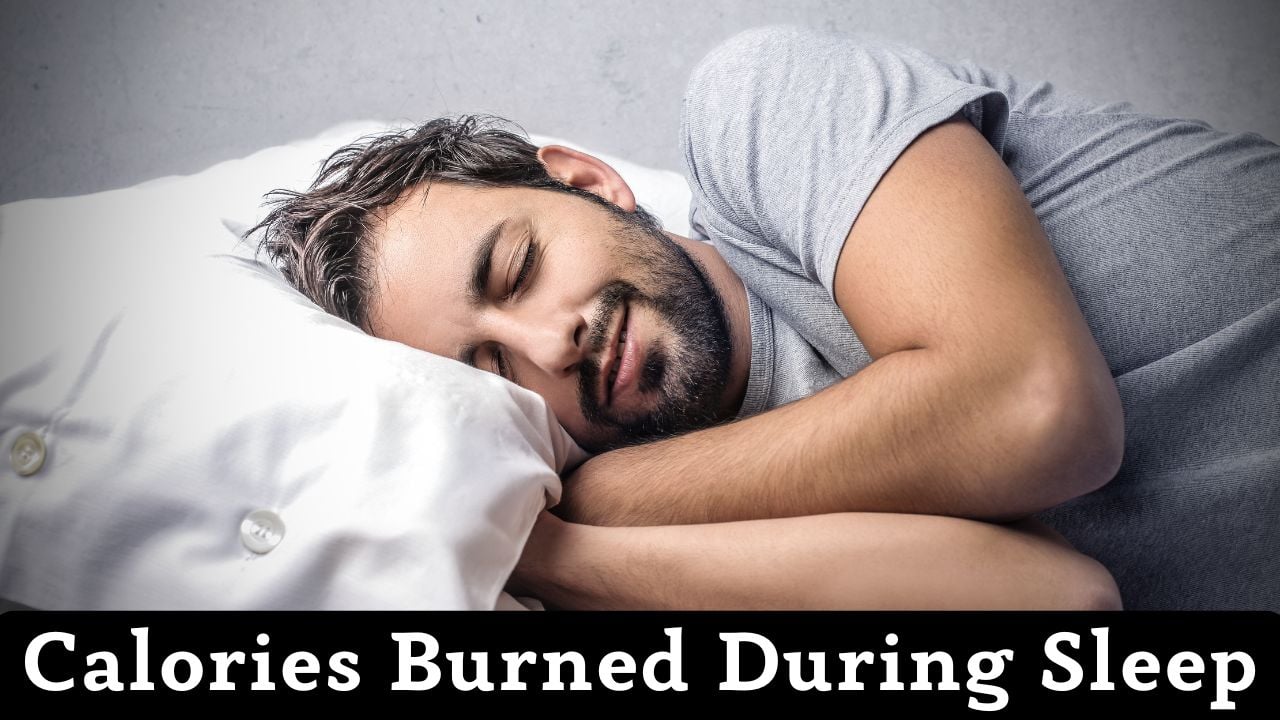Rest & Sleep Calorie Calculator
Scientific energy expenditure calculator for sleep and rest activities with validated metabolism research

How Many Calories Do You Burn While Resting or Sleeping?
Rest and sleep sessions can burn between 35-65 calories per hour, depending on activity type, body weight, room temperature, and metabolic efficiency. A typical 8-hour sleep session burns approximately 280-520 calories for most adults. While not as intense as traditional exercise, rest activities increase your metabolic rate above the absolute minimum through essential bodily functions and light activity. Your body works to maintain core functions, process information, and recover from daily activities, which naturally increases calorie expenditure. This makes quality rest and sleep an essential component of your daily energy balance and overall wellness.
⚡ Sleep Stages and Calorie Burn
Based on metabolic studies published in Sleep Medicine Research, different sleep stages affect calorie burn differently. Light sleep typically burns 1.0-1.2 METs, deep sleep burns 0.9-1.0 METs, and REM sleep can burn 1.1-1.3 METs due to increased brain activity and body temperature fluctuations. Quality sleep patterns support better metabolic function and can enhance daytime calorie burn through improved hormone regulation and recovery processes.
🌡️ Temperature’s Impact on Sleep Metabolism
Room temperature significantly affects nighttime metabolism. Cooler temperatures (60-67°F) can increase calorie burn by 5-10% as your body works to maintain core temperature, while warmer environments may slightly reduce metabolic rate. According to research from the Compendium of Physical Activities, environmental factors play a crucial role in resting energy expenditure. Optimal sleep temperature promotes better sleep quality and metabolic efficiency throughout the night.
Sleep Calorie Burn Formula & Scientific Methodology
🧮 Scientific Calculation Method
Primary Formula: Calories = (MET × 3.5 × Weight(kg) / 200) × Duration(minutes)
MET Determination: Base Sleep MET × Quality Factor × Temperature Factor
Sleep MET Values (Research-Validated):
• Restful Sleep: 0.95 METs (optimal metabolic function)
• Moderate Sleep: 0.85 METs (some interruptions)
• Light Sleep: 0.75 METs (frequent waking)
• REM Sleep: 0.90 METs (dream phase, active brain)
• Restless Sleep: 0.80 METs (tossing and turning)
Temperature Multipliers:
Cool (60-67°F): 1.05x | Moderate (68-72°F): 1.0x | Warm (73-78°F): 0.95x | Hot (79°F+): 0.90x
Sleep Calorie Burn Standards & Performance
| Sleep Quality | MET Value | Efficiency | Calories/Hour (70kg) | Characteristics |
|---|---|---|---|---|
| Sleeping (Deep sleep) | 0.9 | Restful Sleep | 63 cal/hr | Deep sleep, optimal recovery |
| Lying quietly, doing nothing | 0.8 | Restful Sleep | 56 cal/hr | Passive rest, minimal activity |
| Lying quietly, watching TV | 1.0 | Light Activity | 70 cal/hr | Visual stimulation, mental engagement |
| Lying quietly, listening to music | 0.9 | Quiet Rest | 63 cal/hr | Auditory stimulation, relaxed state |
| Lying quietly, reading a book | 0.9 | Quiet Rest | 63 cal/hr | Mental engagement, focused attention |
| Restful Sleep (Deep, uninterrupted) | 0.9 | Restful Sleep | 63 cal/hr | Quality sleep, good recovery |
| REM Sleep (Dream phase) | 0.9 | Restful Sleep | 63 cal/hr | Dream phase, brain active |
| Light Sleep (Frequent waking) | 0.7 | Restful Sleep | 49 cal/hr | Frequent waking, minimal deep sleep |
| Restless Sleep (Tossing and turning) | 0.8 | Restful Sleep | 56 cal/hr | Frequent movement, disrupted sleep |
Note: MET values are based on Compendium of Physical Activities research. Actual calorie burn varies with body composition, age, and environmental factors. Values shown for a 70kg (154lb) individual under standard conditions.
How Many Calories Does Sleep Burn Over Time?
⏱️ Time-Based Sleep Calorie Estimates
The calories burned during sleep accumulate over time and depend on sleep quality and duration. These estimates are based on restful sleep (0.95 METs) and moderate room temperature. For personalized tracking, combine sleep data with our weight loss calculator for comprehensive metabolic analysis.
| Time | 130 lb (59 kg) | 150 lb (68 kg) | 175 lb (79 kg) | 200 lb (91 kg) | 225 lb (102 kg) | 250 lb (113 kg) |
|---|---|---|---|---|---|---|
| 6 Hours | 39 cal | 45 cal | 52 cal | 60 cal | 67 cal | 75 cal |
| 7 Hours | 45 cal | 52 cal | 61 cal | 70 cal | 78 cal | 87 cal |
| 8 Hours | 52 cal | 60 cal | 70 cal | 80 cal | 89 cal | 99 cal |
| 9 Hours | 59 cal | 68 cal | 79 cal | 90 cal | 100 cal | 112 cal |
| 10 Hours | 66 cal | 76 cal | 88 cal | 100 cal | 112 cal | 124 cal |
Note: Values calculated for restful sleep (0.95 METs) at moderate room temperature. Actual calories may vary by 10-20% based on sleep quality and environmental factors.
Sleep Calorie Calculator FAQs
❓ Does your body really burn calories while sleeping?
Yes! According to sleep research published in the Journal of Clinical Sleep Medicine, your body continues essential functions during sleep that require energy expenditure. Your brain processes information, your body repairs tissues, your organs maintain functions, and your metabolism stays active – all of which burn calories. The amount depends on your body weight, sleep quality, and environmental factors.
🌙 How does sleep quality affect calorie burn?
Sleep quality significantly impacts nighttime metabolism. Research shows that different sleep stages have varying metabolic rates, with deep sleep typically having the lowest energy expenditure. Light sleep and REM sleep have similar metabolic rates to quiet rest. Poor sleep quality can reduce calorie burn by disrupting normal metabolic processes and preventing entry into deeper, more efficient sleep stages.
🌡️ Does room temperature affect sleep calorie burn?
Yes, room temperature significantly affects nighttime metabolism. Cooler temperatures (60-67°F) can increase calorie burn by 5-10% as your body works harder to maintain core temperature. Warmer environments may slightly reduce metabolic rate. According to environmental physiology research, optimal sleep temperature (around 65-68°F) promotes better metabolic efficiency and sleep quality.
⚖️ Why does body weight affect sleep calories?
Body weight affects sleep metabolism in two ways: heavier individuals require more energy to maintain basic bodily functions, and larger body mass increases the basal metabolic rate. However, the effect is less pronounced during sleep than during activity. For every additional 25 pounds (11 kg), expect approximately 10-15% more calories burned during sleep, assuming similar sleep quality.
💤 How does sleep contribute to weight management?
Quality sleep is crucial for weight management. Research confirms that adequate sleep regulates hunger hormones (ghrelin and leptin), reduces cravings, and maintains healthy metabolism. Poor sleep can disrupt hormonal balance and may increase calorie intake by affecting appetite regulation. However, oversleeping isn’t recommended – aim for 7-9 hours per night for optimal metabolic health and recovery.
📱 Can I track my sleep calories for weight loss?
Absolutely! Sleep calorie tracking is valuable for comprehensive weight management. While sleep calories represent only 20-30% of your daily energy expenditure, understanding your nighttime metabolism helps create complete calorie awareness. Combine sleep data with our exercise calorie calculator and BMR calculator for complete metabolic profiling. Track this calculator at: https://fitliferegime.com/calories-burned-sleeping-calculator/
⚕️ Sleep Research & Health Disclaimer
This sleep calorie calculator provides estimates based on scientific formulas and research-validated MET values from sleep physiology studies. Individual results may vary due to body composition, sleep disorders, medications, age, and environmental factors. The calculator is designed for educational and informational purposes only and should not replace professional medical advice or sleep disorder diagnosis. Consult with healthcare professionals, sleep specialists, or registered dietitians before making significant changes to your sleep habits or weight management plan. Quality sleep is essential for overall health and should be prioritized alongside nutrition and physical activity.
